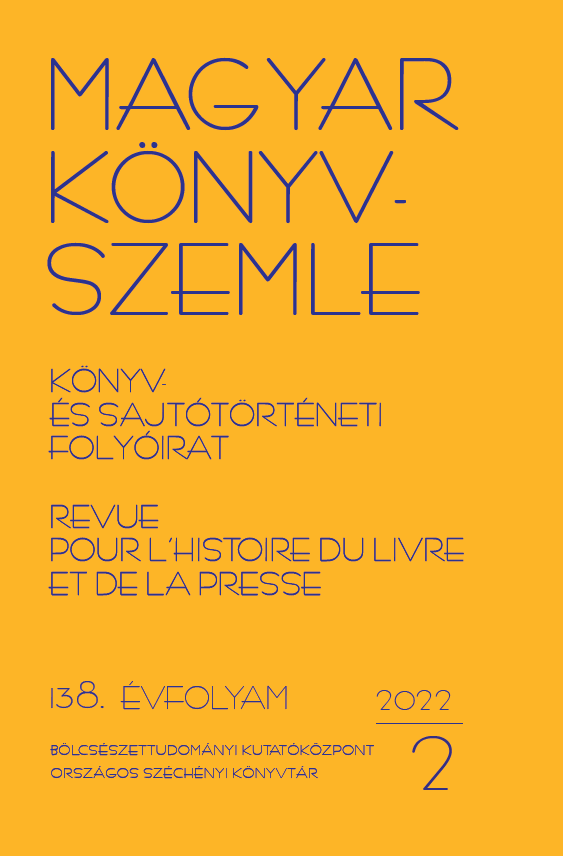Masonic Allusions in a Latin Poem of István Agyich Addressed to Count Ferenc Balassa (1785)
Abstract
In this paper I articulate the following hypothesis: an occasional poem may have some masonic relevance, how little soever this reference may be expressed openly. What are the markers which may allow this to be tested? In this respect my case study invokes a masonic constitution called Draskovich observance which was elaborated in 1775 and was amended in 1777. With this observance a masonic province called Liberty (Libertas) was established under the protection of the Holy Crown of the Kingdom of Hungary, aiming to connect Croatian and Hungarian lodges into a Grand Lodge independent from the Austrian and German Grand Lodges, thus implementing a separate system on its own. In terms of politics this system was attached to the Austrian Grand Lodge in 1781, however, the accession procedure was drawn-out until 1784. Under such circumstances – and in the light of latter changes exerted in the case of a 1789 issuance of the poem by Karl Joseph Michaeler who was a mason indeed – it is telling that István Agyich (or regarding his Croatian origin, Stjepan Hadžić, 1730–1789) wrote a salutary poem to Count Ferenc Balassa in 1785 when the Count was appointed to Ban of Croatia, Dalmatia, and Slavonia. On the other hand, in the same year Count Balassa was also appointed to the commissioner of the Zagreb District (one out of the ten newly established administrative unite by Joseph II) which consisted of such counties where masonic activity was current at the time: Zagreb, Kőrös (Križevci), Pozsega (Požega), Szeverin (Severin), Varasd (Varaždin), and Zala Counites. Lodges in these counties were included in the Grand Lodge of Liberty. And Agyich’s poem does not miss to reflect some crucial facts concerned here. This is clear in a single reference to Zala, a Hungarian county, which was attached to Zagreb district later, which further alludes to a historical-political unity of the two countries, Croatia, and Hungary, in a symbolic way under the auspices of the Holy Crown, which altogether is embodied by the governance of the newly appointed Count Balassa. As Count Balassa wrote a treatise on the Holy Crown in his formative years at the Theresianum in Vienna, and later he was a keeper of the relic, these facts exposed in the poem may gain some ambiguous meaning as well. Beyond that, the career of Count Balassa is displayed by a narrative based on a catalogue of virtues. Although, these virtues are not specified only described in the poem, at this point one can observe a certain resemblance to the text of the Draskovich observance in which a copiously detailed catalogue of virtues can be found as well. However, the most striking parallel between the poem and the masonic thought is Hercules since Count Ferenc Balassa is represented as Hercules many times in the text, and the antique hero is a key figure for the masonic constitution too. Along these details and by detecting such allusive tactics as above (typical for masonic thought), I provide an interpretation of the poem in favour of freemasonry. However, I must specify that I was unable to tell whether Agyich and Balassa had been masons themselves or not.



